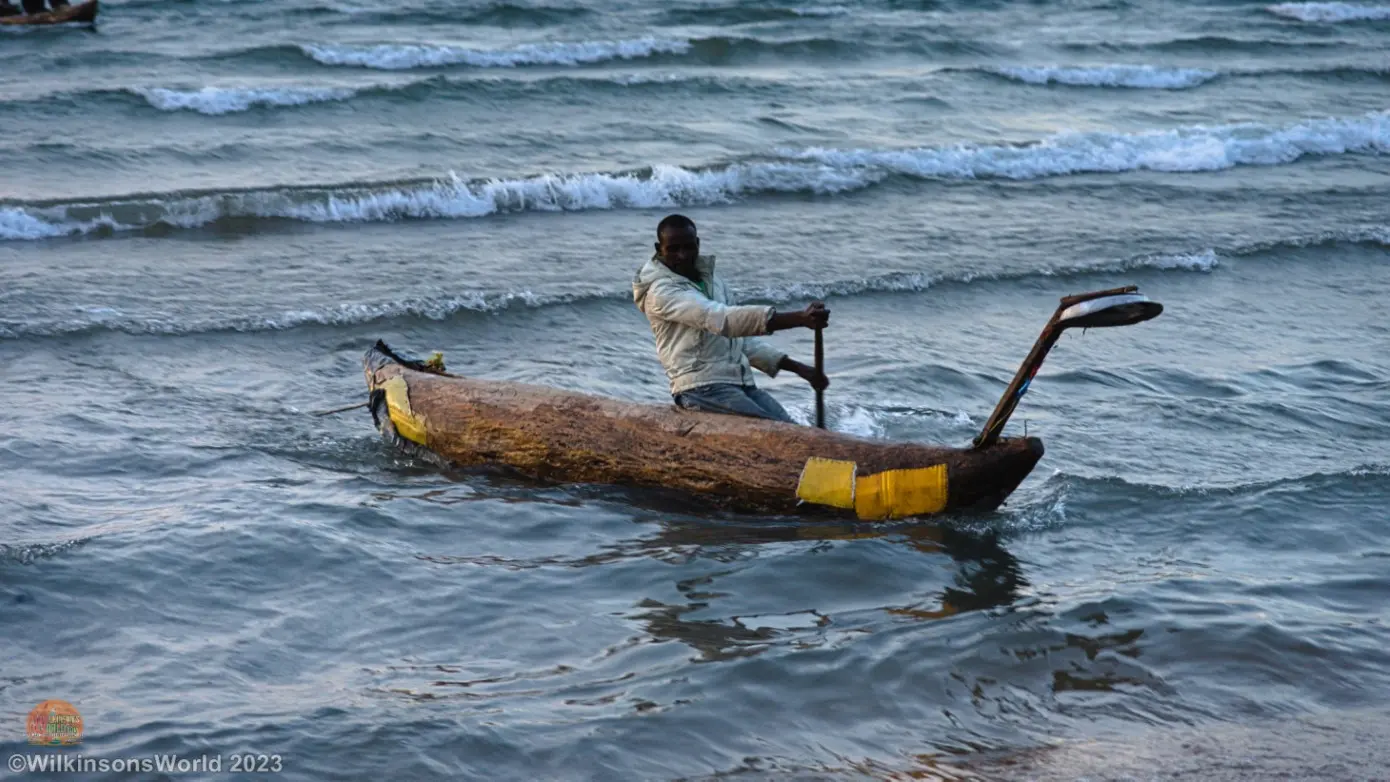Lake Malawi, as the name implies, is an enormous freshwater lake in the African country of Malawi. This impressive body of water stretches across two other countries – Mozambique and Tanzania. With the longest shoreline of the three countries, it is a vital resource for Malawi’s economy and sustenance.
At the heart of this vast body of water is a community of fishermen who play a crucial role in securing their livelihoods by feeding their families, selling surplus catches, and contributing to maintaining the delicate balance of a unique eco-system.
Rob and I were fortunate to stay in two beautiful campsites at Senga Bay and Cape Maclear, which overlooked the lake and gave us an opportunity to watch the activities of these fishermen for a couple of days. It was a treat to see lights bobbing on the dark water at night when everyone went out fishing. We loved their uncomplicated lifestyle and their sense of community, especially when they came back to shore after spending the night out on the lake.
The traditional practices of using simple wooden boats and hand-held nets demonstrated the deep-rooted reliance on fishing methods that have been passed down for generations. Of course, more modern boats are also used by those who can afford them.
Fishing nets are carefully maintained when the boats return at sunrise, and the act of repair itself becomes a time to sit and share the stories about their catches and their lives.
Fish caught are mainly tilapia, sardines and catfish.
Despite their commitment to sustainable fishing techniques, these fishermen face some challenges. As the population grows, overfishing inevitably affects the biodiversity of the lake and disrupts the delicate food chain, resulting in fewer fish being available. The problem is further exacerbated by illegal fishing practices such using fine mesh nets, which also catch juvenile fish. Climate change, pollution and deforestation also play significant roles in the life and well-being of the lake.
Beyond its economic impact, fishing holds deep cultural and spiritual significance for the people of Malawi. Fishing ceremonies and rituals are an essential part of their identity, during which they express gratitude by celebrating the lake’s bounty and giving thanks for a successful catch.
It was great fun to share in the anticipation of the folks on the shore at dawn when the boats returned and to hear the excited chatter as they saw what had been caught. It’s an amazing spot and we felt privileged to have been able to share their world for a while.



Recent Comments